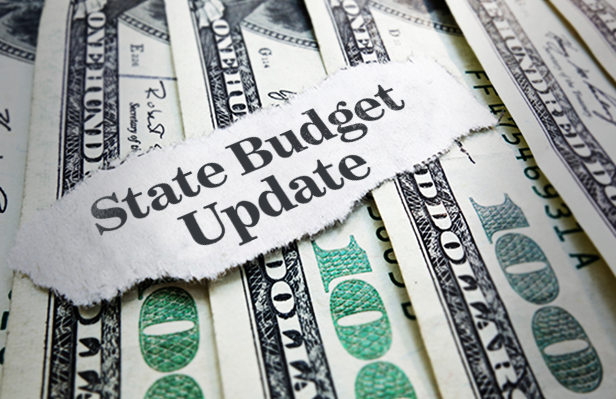Press Release

House-Passed Spending Plan Holds Line on Taxes
Today, the Pennsylvania House passed a $32.7 billion 2018-19 spending plan in an overwhelming, bipartisan vote (188-10). The legislation, House Bill 2121, avoids tax increases and pulls back from Gov. Wolf’s February spending proposal but raises questions about fiscal stability in future years.
“Pennsylvania families should be relieved that lawmakers plan to spare them from a tax increase this year,” explained Nathan Benefield, vice president and chief operating officer at Commonwealth Foundation. “The proposed spending increase, while still exceeding the Taxpayer Protection Act limit, is a welcome reduction from Gov. Wolf’s proposal. But our state needs substantive reforms to get back on solid ground and it’s up to lawmakers to seize those opportunities as the budget process continues.”
Here are five key takeaways about the House-passed spending bill:
- Spending growth would exceed the Taxpayer Protection Act cap. The budget plan increases General Fund spending by more than $718 million—an increase of 2.2 percent. (Note that House leaders place the increase at 1.7 percent—adding $159 million of “2017-18 spending enacted in 2016-17” to the baseline.) That means Harrisburg is demanding nearly $300 million more from Pennsylvanians than it would under TPA.
- The budget does not raise taxes or fees on working families. Gov. Wolf’s punitive severance tax proposal is left out as well. This is great news for working Pennsylvanians, who already shoulder one of the highest tax burdens in the country.
- Next year's budget will be more difficult. Under HB 2121, about $351 million in Medicaid payments come from one time revenues, while millions more in Medicaid funds will be moved into the state’s shadow budget. Tobacco Settlement Fund and PlanCon bond debt payments start coming due in FY 2019-20, among other cost shifts.
- The budget increases Pre K-12 education spending by more than $450 million. The increases include $223.5 million for pensions, $100 million for basic education, $20 million for pre-k programs, and $15 million for special education. The additional money will add to Pennsylvania’s record revenue per student figure, which is nearly $18,000.
- School choice expansion. The state budget includes raising the cap on the Educational Improvement Tax Credit (EITC) by $25 million, which is a significant win for Pennsylvania's families.
“We applaud lawmakers for expanding the EITC program, which will bring education options to thousands of students,” continued Benefield. “However, as the budget process continues, we encourage lawmakers to enact substantive reforms like establishing commonsense spending limits, promoting work as a solution to poverty, and further expanding parental choice in education.”
Lawmakers should prioritize these three policy reforms to substantially improve Pennsylvania’s outlook:
- Passing the Taxpayer Protection Act. HB 110, which would establish the Taxpayer Protection Act via a constitutional amendment, has already passed the House and is eligible for a full Senate vote. Under the TPA’s commonsense spending limits, state spending could rise this year by approximately $422 million, or 1.32 percent. If the TPA had been in place since 2003, Pennsylvania families would have $10,000 more in their pockets.
- Establishing work requirements. The house passed HB 2138 in April and HB 1659 in May and both are moving through the Senate. These bills would help bring hundreds of thousands of people back into the workforce, greatly improving their economic well-being and helping to fill the over 200,000 open jobs in the state.
- Ensuring tax credit scholarships meet students’ needs. Lawmakers can build on their current proposal of a one-time EITC increase by adopting an automatic escalator for the state’s tax credit scholarship programs to give students an alternative to underperforming and dangerous schools.
Commonwealth Foundation experts are available for comment. Please contact Michael Torres at 850-619-2737 or [email protected] to schedule an interview.
# # #
The Commonwealth Foundation transforms free-market ideas into public policies so all Pennsylvanians can flourish.